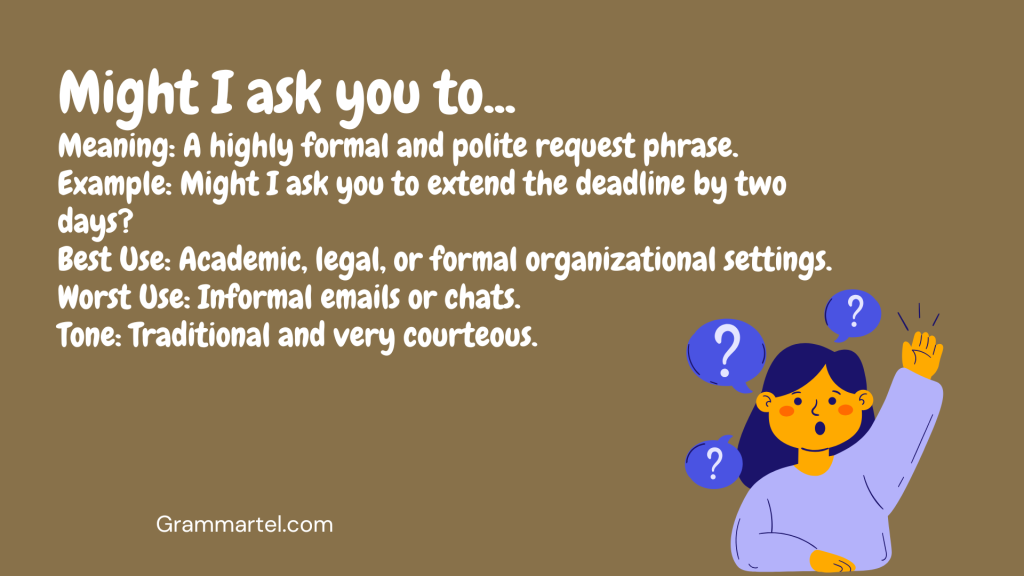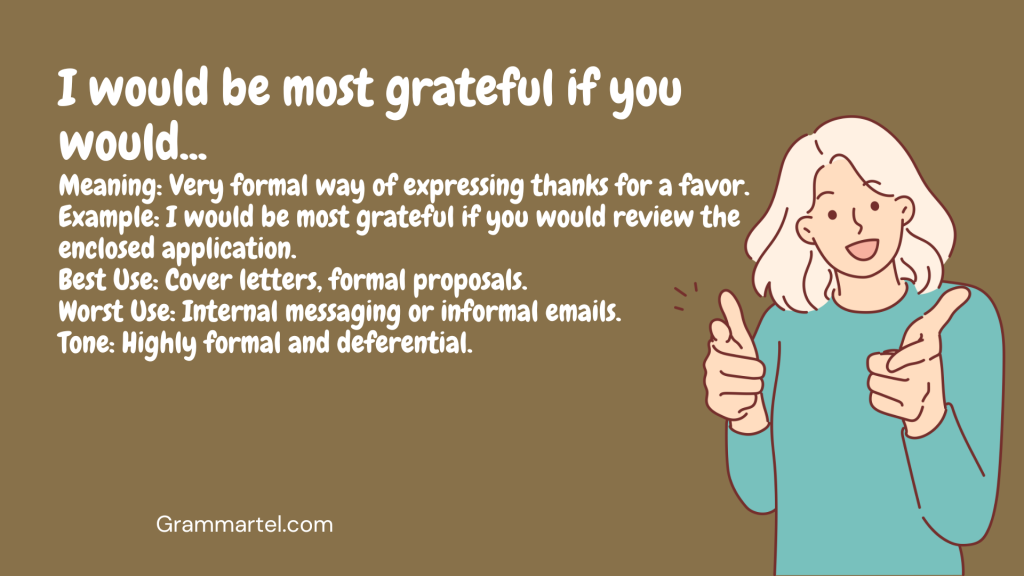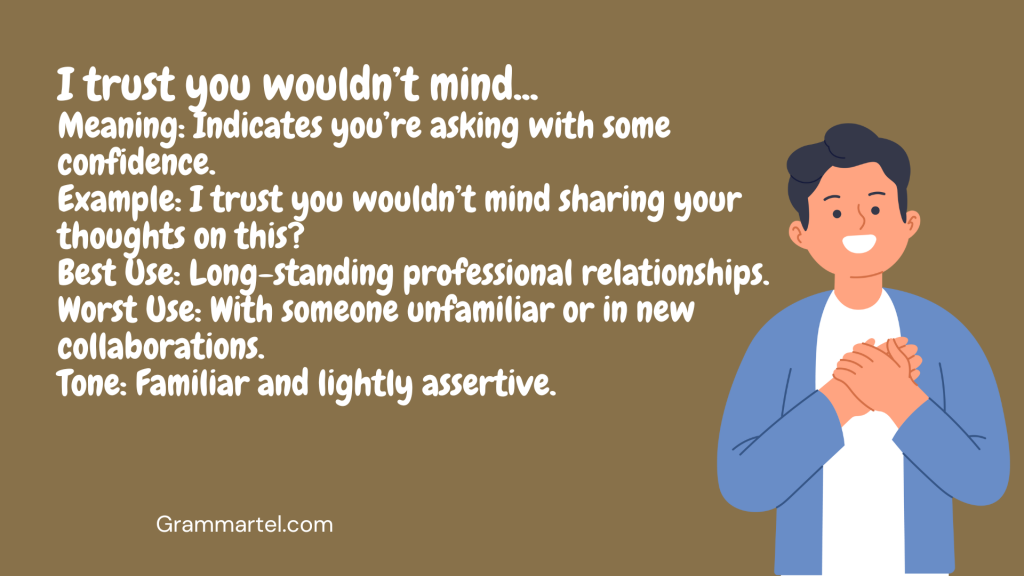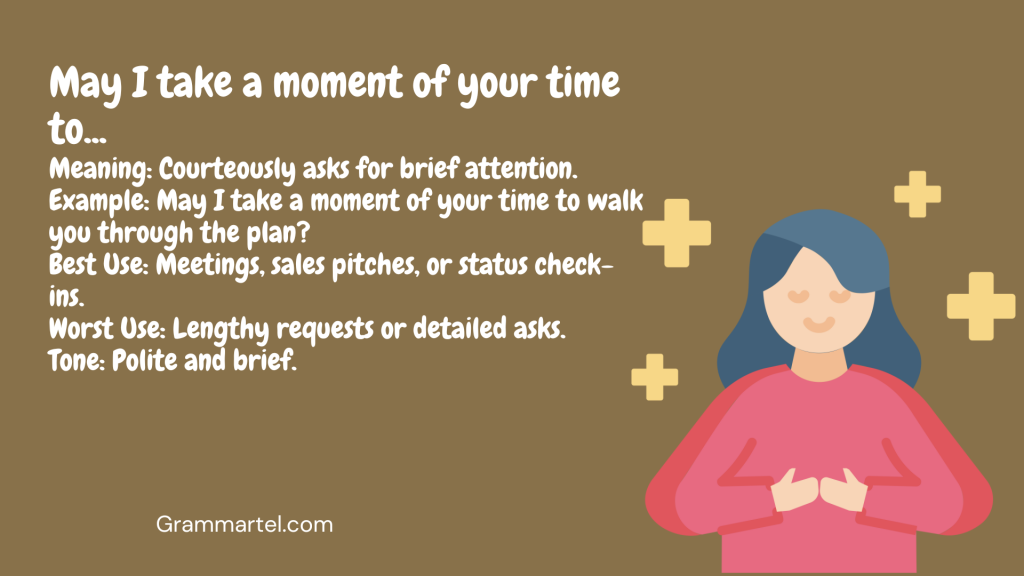Asking for something may seem simple, but choosing the right words—especially in formal settings—can make a big difference. Whether you’re writing a business email, speaking to your boss, or making a request in a professional setting, being polite and respectful matters. It shows good manners and helps build better communication. In this guide, you’ll find 40 polite and formal ways to make a request, along with clear examples to use with confidence.
What Does “Kindly Request” Mean?
“Kindly request” is a polite way to ask someone to do something. It sounds softer and more respectful than simply saying “please join us” or “we ask you to.” The word “kindly” shows consideration and courtesy. When paired with “request,” it creates a tone that is formal, gentle, and respectful. You’re still asking for action—but you’re doing it in a way that shows the other person’s choice is valued. It’s often used in written invitations, business emails, or formal letters.
When to Use “Kindly Request”
Use “kindly request” when you need to be polite and professional. It fits well in situations where tone matters—like in emails to clients, formal event invitations, or public announcements. For example, you might say, “We kindly request your presence at our annual meeting,” or “We kindly request that you RSVP by Friday.” It’s ideal when speaking to people in positions of authority, or when you want your message to feel respectful and refined. It’s not as casual as “join us,” but it works when the setting calls for formality and tact.
40 Polite and Formal Ways to Make a Request (With Examples)
1. Would you be so kind as to…
Meaning: A highly polite way to ask someone to do something.
Example: Would you be so kind as to forward me the updated report by noon?
Best Use: Email to a supervisor, external clients, or formal professional settings.
Worst Use: Casual chat with coworkers or friends.
Tone: Extremely courteous and respectful.
2. I would appreciate it if you could…
Meaning: Expresses gratitude in advance for a favor.
Example: I would appreciate it if you could send the meeting agenda before Friday.
Best Use: Professional email correspondence.
Worst Use: Instant messaging or social platforms.
Tone: Polite and appreciative.
3. May I request that you…
Meaning: Formal way of asking someone to do something.
Example: May I request that you review the attached document at your earliest convenience?
Best Use: Business communication or official letters.
Worst Use: Everyday conversations or peer chats.
Tone: Formal and direct.
4. Kindly…
Meaning: A soft and respectful way to ask someone to act.
Example: Kindly submit your feedback by Thursday.
Best Use: Office emails, service requests.
Worst Use: Informal speech or casual texts.
Tone: Gentle and courteous.
5. Would it be possible for you to…
Meaning: A tactful way to inquire if someone can help.
Example: Would it be possible for you to reschedule our meeting to next week?
Best Use: Meetings, emails, or scheduling requests.
Worst Use: Urgent demands or emergency requests.
Tone: Diplomatic and non-imposing.
6. I was wondering if you could…
Meaning: A soft, indirect way of asking.
Example: I was wondering if you could take a look at the draft when you have a moment?
Best Use: Emailing managers, professional peer interactions.
Worst Use: Time-sensitive or critical situations.
Tone: Mild and unassuming.
7. When you have a moment, could you…
Meaning: Shows you’re mindful of the other person’s time.
Example: When you have a moment, could you approve the purchase order?
Best Use: Requests that aren’t urgent.
Worst Use: Requests with looming deadlines.
Tone: Considerate and informal-formal hybrid.
8. I’d be grateful if you could…
Meaning: Expresses appreciation for the person’s help.
Example: I’d be grateful if you could look over the attached proposal.
Best Use: Written requests where tone matters.
Worst Use: Casual chats or brief directives.
Tone: Warm and appreciative.

9. Might I ask you to…
Meaning: A highly formal and polite request phrase.
Example: Might I ask you to extend the deadline by two days?
Best Use: Academic, legal, or formal organizational settings.
Worst Use: Informal emails or chats.
Tone: Traditional and very courteous.
10. At your convenience, would you mind…
Meaning: Suggests a request with flexibility in timing.
Example: At your convenience, would you mind reviewing the attached report?
Best Use: Respectful communications in professional contexts.
Worst Use: Time-critical or pressing requests.
Tone: Respectful and accommodating.
11. If it’s not too much trouble, could you…
Meaning: A gentle way to downplay your request.
Example: If it’s not too much trouble, could you resend the file?
Best Use: Email to colleagues or subordinates.
Worst Use: When authority or assertiveness is needed.
Tone: Apologetic and soft.
12. Could I trouble you to…
Meaning: Implies you’re aware your request might inconvenience someone.
Example: Could I trouble you to take a look at this document?
Best Use: Requests to senior colleagues or clients.
Worst Use: Urgent or repetitive asks.
Tone: Humble and respectful.
13. Please would you…
Meaning: Adds softness to a direct “please”.
Example: Please would you confirm your attendance by Tuesday?
Best Use: Formal writing with a soft tone.
Worst Use: Demanding situations.
Tone: Polished and courteous.
More to Love: 40 Friendly & Formal Substitutes for “Don’t Hesitate to Contact Me” (With Examples)
14. I hope it’s not too much to ask, but could you…
Meaning: Shows you’re aware you’re asking a favor.
Example: I hope it’s not too much to ask, but could you send that over tonight?
Best Use: When making additional or large requests.
Worst Use: Everyday tasks or routine instructions.
Tone: Modest and respectful.
15. I’d like to ask you to…
Meaning: Straightforward and respectful request.
Example: I’d like to ask you to review the minutes before we share them publicly.
Best Use: Formal internal communication.
Worst Use: Highly informal settings.
Tone: Firm yet polite.
16. May I kindly ask that you…
Meaning: Very courteous and deferential phrasing.
Example: May I kindly ask that you review the document by this evening?
Best Use: Client communications or cross-cultural business.
Worst Use: Team Slack messages or quick texts.
Tone: Elegant and formal.
17. Could I ask for your help with…
Meaning: Requests assistance while showing appreciation.
Example: Could I ask for your help with finalizing the presentation?
Best Use: Team collaboration or peer support.
Worst Use: When giving orders.
Tone: Collegial and sincere.

18. I would be most grateful if you would…
Meaning: Very formal way of expressing thanks for a favor.
Example: I would be most grateful if you would review the enclosed application.
Best Use: Cover letters, formal proposals.
Worst Use: Internal messaging or informal emails.
Tone: Highly formal and deferential.
19. I hope I can count on you to…
Meaning: Suggests a degree of expectation and trust.
Example: I hope I can count on you to complete the analysis by Friday.
Best Use: Delegation or leadership communication.
Worst Use: Asking strangers or external contacts.
Tone: Warm and trust-based.
20. Would you consider…
Meaning: Gentle way to ask someone to do or accept something.
Example: Would you consider revising the timeline slightly?
Best Use: Negotiations or suggestions.
Worst Use: Hard instructions or required tasks.
Tone: Suggestive and polite.
21. I’d be thankful if you could…
Meaning: Expresses appreciation for the favor in advance.
Example: I’d be thankful if you could proofread this section before the call.
Best Use: Professional emails or thoughtful requests.
Worst Use: Casual exchanges or quick Slack messages.
Tone: Warm and appreciative.
22. Might I suggest that you…
Meaning: Offers a proposal while implying a request.
Example: Might I suggest that you reach out to the client directly?
Best Use: Meetings or discussions requiring diplomacy.
Worst Use: Tasks that require immediate execution.
Tone: Indirect and tactful.
23. Please let me know if you’re able to…
Meaning: Respectfully checks availability or willingness.
Example: Please let me know if you’re able to take on the editing task.
Best Use: Delegating or proposing new tasks.
Worst Use: Situations needing direct instructions.
Tone: Respectful and open-ended.
24. May I count on your support to…
Meaning: Invokes collaboration and mutual responsibility.
Example: May I count on your support to coordinate the logistics?
Best Use: Team leadership or project management.
Worst Use: With new acquaintances or external contacts.
Tone: Motivational and collaborative.
25. When it suits you, could you…
Meaning: A courteous way to show flexibility.
Example: When it suits you, could you finalize the edits?
Best Use: Favor requests or less urgent tasks.
Worst Use: High-priority or deadline-driven tasks.
Tone: Flexible and kind.
26. I’d greatly value your input on…
Meaning: Frames the request as a compliment.
Example: I’d greatly value your input on the final proposal.
Best Use: Asking for feedback or expert opinion.
Worst Use: Tasks not requiring deep expertise.
Tone: Flattering and respectful.
27. Would you be able to spare a moment to…
Meaning: A soft approach to requesting time or help.
Example: Would you be able to spare a moment to review this draft?
Best Use: Brief, specific requests.
Worst Use: Tasks requiring major time commitment.
Tone: Gentle and respectful.

28. I trust you wouldn’t mind…
Meaning: Indicates you’re asking with some confidence.
Example: I trust you wouldn’t mind sharing your thoughts on this?
Best Use: Long-standing professional relationships.
Worst Use: With someone unfamiliar or in new collaborations.
Tone: Familiar and lightly assertive.
29. Please consider reviewing…
Meaning: Suggestive and respectful; not forceful.
Example: Please consider reviewing the attached report before our meeting.
Best Use: Suggestive feedback or peer review.
Worst Use: Tasks that require firm direction.
Tone: Mildly persuasive and formal.
30. Do you think it would be possible to…
Meaning: Seeks permission or agreement in a gentle tone.
Example: Do you think it would be possible to delay the rollout by a week?
Best Use: Sensitive situations requiring consensus.
Worst Use: Straightforward, routine asks.
Tone: Diplomatic and cautious.
31. I’d be obliged if you would…
Meaning: A formal expression of grateful expectation.
Example: I’d be obliged if you would notify the team of the changes.
Best Use: Written correspondence or formal memos.
Worst Use: Spoken requests or chat messages.
Tone: Traditional and polished.
32. Do you happen to have a moment to…
Meaning: Gently asks if the person is available.
Example: Do you happen to have a moment to sign off on the brief?
Best Use: Checking in politely during busy times.
Worst Use: Emergencies or urgent matters.
Tone: Friendly and soft.
You Might Enjoy: 40 Creative Ways to Say “Join Us” (With Examples)
33. I wonder if you’d be able to…
Meaning: Curious and polite inquiry, not demanding.
Example: I wonder if you’d be able to help us update the FAQ page?
Best Use: Suggestive requests in collaborative environments.
Worst Use: With unfamiliar or hierarchical recipients.
Tone: Curious and polite.
34. Would you kindly take a moment to…
Meaning: A respectful and thoughtful prompt.
Example: Would you kindly take a moment to confirm your attendance?
Best Use: Invitations, reminders.
Worst Use: Pressing issues or urgent deadlines.
Tone: Gracious and formal.
35. I hope you wouldn’t mind…
Meaning: Hints at sensitivity or hesitation in asking.
Example: I hope you wouldn’t mind rescheduling the call?
Best Use: Apologetic or re-arrangement requests.
Worst Use: Direct instructions or high-authority communications.
Tone: Cautious and considerate.

36. May I take a moment of your time to…
Meaning: Courteously asks for brief attention.
Example: May I take a moment of your time to walk you through the plan?
Best Use: Meetings, sales pitches, or status check-ins.
Worst Use: Lengthy requests or detailed asks.
Tone: Polite and brief.
37. Your assistance with this would be much appreciated.
Meaning: Shows gratitude while making a request.
Example: Your assistance with this would be much appreciated by the entire team.
Best Use: Requests involving group effort or cross-departmental support.
Worst Use: Casual or impersonal messages.
Tone: Thankful and formal.
38. I hope you can assist me with…
Meaning: Gently expresses need for help.
Example: I hope you can assist me with preparing the budget breakdown.
Best Use: Support requests or asking for help outside one’s scope.
Worst Use: Demanding contexts.
Tone: Supportive and optimistic.
39. It would be helpful if you could…
Meaning: Highlights the benefit of the action.
Example: It would be helpful if you could provide feedback by Tuesday.
Best Use: Team collaborations, planning.
Worst Use: When the action is mandatory, not optional.
Tone: Constructive and helpful.
40. Would you mind helping me with…
Meaning: Polite and respectful inquiry.
Example: Would you mind helping me with the closing statements?
Best Use: Requests among peers or within flat team structures.
Worst Use: Formal letters or top-down instructions.
Tone: Friendly and courteous.
Conclusion
Good communication isn’t just about getting your message across—it’s about how you do it. Using polite and formal language helps you sound respectful, clear, and professional. These phrases can be useful in emails, meetings, or even daily work conversations. Pick the ones that fit your tone and situation, and with a little practice, you’ll make strong, respectful requests that others are happy to respond to. Make Every Word Count with Grammartel.

